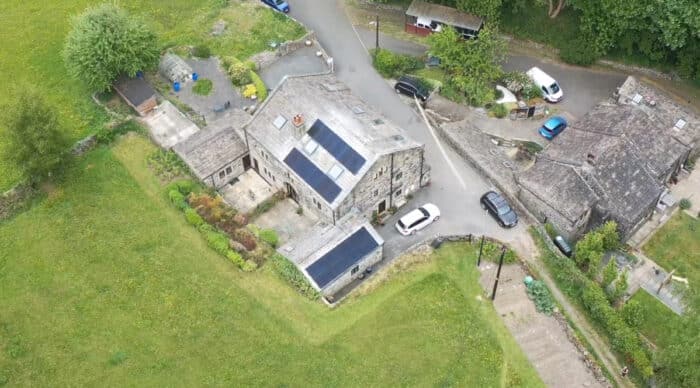When most people look at their energy bills, they focus on the unit rate – the price per kWh of electricity or gas. But there’s a hidden part of your bill that’s quietly climbing and could soon cost homeowners thousands: grid charges.
These aren’t optional extras. They’re the fixed costs you pay just to stay connected to the energy network, regardless of how much energy you actually use. And as the UK grid struggles with ageing infrastructure, higher demand, and the shift to renewables, these charges are set to soar.
What could once have been a £200-a-year nuisance could soon become a £2,000-a-year burden.

What Are Grid Charges, Really?
Grid charges (sometimes listed as standing charges or network costs) are the fees energy companies pass on to maintain and upgrade the national network. They cover:
- Transmission: moving electricity from power stations to your local area.
- Distribution: maintaining pylons, substations, and local wires.
- Admin & policy costs: green levies, supplier overheads, and other fees.
In short, you’re not paying for the energy you use, you’re paying for the privilege of being connected to the system.
Why Grid Charges Are Rising
- Aging infrastructure – Much of the UK grid is decades old and needs upgrading to handle modern demand.
- Electrification boom – EVs, heat pumps, and data centres are driving record demand.
- Renewable integration – Balancing wind and solar at scale requires new investments in storage and flexibility.
- Policy shifts – As fossil fuels are phased out, more of the costs are being shifted to consumers through fixed charges.
All of this means one thing: grid charges are no longer small change.
From £200 to £2,000: Why This Matters
Today, the average UK household pays around £180–£250 per year in standing charges. That might feel manageable, but projections show these costs could multiply over the next decade.
Imagine paying £2,000 a year just to stay connected, before you’ve even switched on a light. For many households, that could rival their actual energy consumption costs.
And unlike unit rates, you can’t control grid charges by using less. They’re fixed.
How Solar Protects You
Here’s the good news: homeowners with solar panels are far less exposed to the pain of rising grid costs.
- 🌞 Generate your own electricity – reducing how often you draw from the grid.
- 🔋 Store excess in a battery – meaning you can avoid peak-time charges and keep your usage independent.
- 💧 Add an iBoost – turning spare solar into free hot water, cutting another big bill.
- 🚗 EV charging from solar – powering your car at home instead of relying on grid prices.
With solar + battery storage, you’re not at the mercy of grid costs. You’re in control.
The Hidden Cost of Waiting
Every year you delay installing solar, you’re not just losing out on unit-rate savings. You’re locking yourself into rising grid charges that could spiral into thousands over the lifetime of your home.
Think of it this way: a system installed today can start shielding you immediately. Wait five years, and you’ve already paid out potentially thousands in unnecessary standing costs.
A Future-Proof Home Starts Now
Grid charges are rising. That’s not a maybe, it’s already happening. The question is how much you want to keep paying just for being connected.
Solar isn’t just about cutting bills today, it’s about future-proofing your home against the costs no one talks about.
📞 Contact Novus Energy today on 01422 768113 to see how solar + battery storage can protect your family from rising grid costs and lock in decades of savings.
Or simply fill out the contact form below and one of our friendly team will get back to you.